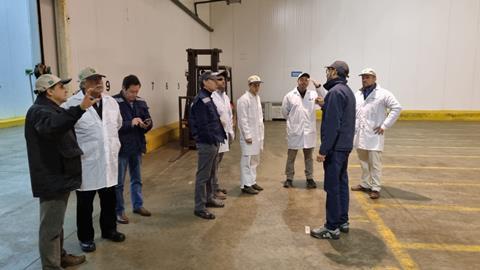Site will double in size so that it can carry out inspections under new Systems Approach on table grapes
Chile’s Coquimbo Region exports about 200,000 tonnes of fresh fruit to the world each season, among them table grapes, citrus, cherries and blueberries. It plays a key role in supplying the first Chilean grapes of the season, principally to the US. In order to ship to this market, the grapes must currently comply with a quarantine treatment involving fumigation at destination, which affects their quality and condition and impacts Chile’s competitiveness compared to other origins.

“That is why we are very optimistic with the US Department of Agriculture’s prompt publication of the Systems Approach protocol, as it will allow us to make shipments without fumigation, mainly for grapes from the Atacama, Coquimbo and an area of Valparaíso regions,” said Asoex president Iván Marambio.
Together with representatives of the USDA and other members of Chile’s fruit industry and plant health authority, Marambio recently visited the facilities of the Coquimbo Phytosanitry Inspection Site where the review protocols required by the Systems Approach will take place.
“The Systems Approach is a fundamental measure for our table grapes. That is why we are extending and improving the infrastructure of this site in order to be in a position to carry out the new protocol,” Marambio said.
The Asoex president said work on the new facility is progressing well and he hoped it would be ready to carry out inspections of table grapes under Systems Approach starting this coming season.



